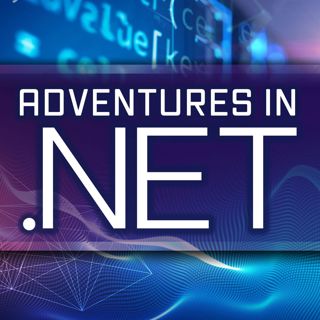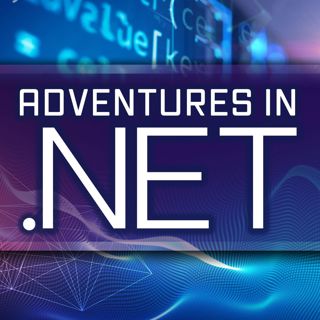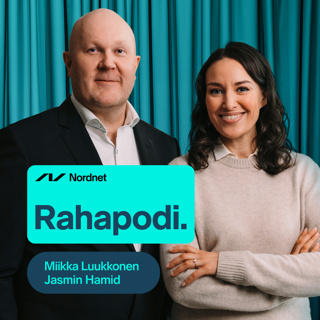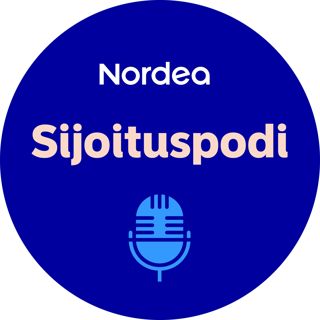
Performant Applications using the Actor Pattern & Akka.NET with Aaron Stannard - .NET 206
Aaron Stannard joins the Adventures in .NET team this week to discuss Akka.NET. He digs into the Actor model, the reasons to use it and what gave him the impetus to port Akka to .NET.Linkshttps://petabridge.com/bootcampBuilding Your First Whiskey CollectionPicksShawn - Locke & KeyCaleb- Animal Crossing: New HorizonsJoel - Fender Special Edition Deluxe PJ Bass Sea Foam PearlAaron - eaglerare.comBecome a supporter of this podcast: https://www.spreaker.com/podcast/adventures-in-net--6102015/support.
19 Marras 20241h 8min

Product Management? - .NET 205
Most developers we know find project management to be a necessary evil but without it a lot of us would be stumbling around in the dark. Shawn and Caleb look back over their careers to discuss different project management methodologies. Whether it is waterfall, agile, scrum, or none of these, projects are hard to manage. Both Shawn and Caleb have seen a lot of different ways that projects can be managed or mismanaged and they have differing opinions on what works best. Join us for this episode to find out which they prefer and what allows them to focus on getting to work coding. What is your preferred project management style? Let us know on Twitter at @dotnet_PodcastPicksCaleb- Guild Wars 2: End of Dragons Shawn- Neewer Desk Mount LED Video Light Become a supporter of this podcast: https://www.spreaker.com/podcast/adventures-in-net--6102015/support.
12 Marras 202428min

Integration Testing - The Why and How - .NET 204
We talk to Martin Costello - a .NET developer with a QA background - about integration testing. We walk through the different types of automated testing and discuss the benefits and purpose for each type.Martin introduces us to useful tools he uses to write tests within the .NET ecosystem and discusses what we should and shouldn't be testing as well as the metrics that are important when evaluating how well tested your code is.LinksIntegration Testing Techniques for ASP.NET CoreReliably Testing HTTP Integrations in a .NET Application 1Writing Logs to xunit Test OutputIntegration testing AWS Lambda C# Functions with Lambda Test ServerIntegration Testing ASP.NET Core Resources Protected with Antiforgery Using Application PartsGitHub - coverlet-coverage/coverlet: Cross platform code coverage for .NETGitHub - martincostello/sqllocaldb: SQL LocalDB Wrapper is a .NET library providing interop with the Microsoft SQL Server LocalDB Instance APIGitHub - justeat/httpclient-interception: A .NET Standard library for intercepting server-side HTTP dependenciesGitHub - martincostello/xunit-logging: Logging extensions for xunitGitHub - martincostello/lambda-test-server: A NuGet package that provides an in-memory test server for testing AWS Lambda functionsGitHub - martincostello/dotnet-minimal-api-integration-testing: An example of integration testing ASP.NET Core 6 Minimal hosting and actionsTwitter: Martin Costello ( @martin_costello )PicksMartin- What We Do in the ShadowsShawn- Introducing Your Seattle KrakenWai- Young Sheldon (Official Site) Watch on CBSBecome a supporter of this podcast: https://www.spreaker.com/podcast/adventures-in-net--6102015/support.
5 Marras 202449min

Creating Developer Courses with Taurius Litvinavicius - .NET 203
In this episode of Adventures in .NET, the panel discusses creating Udemy developer courses and .NET Core APIs with course author Taurius LitvinavicusLinkshttps://www.udemy.com/user/taurius-litvinavicius/PicksShawn - The Shannara ChroniclesCaleb - www.amazon.com/Boys-Season-Official-Teaser-TrailerWai - OraiTaurius - Azure DevOpsBecome a supporter of this podcast: https://www.spreaker.com/podcast/adventures-in-net--6102015/support.
29 Loka 202438min

Modern Identity: From Internal Directories to Cross-Domain Identity Over the Public Internet with Bobby Johnson - .NET 202
Bobby Johnson introduces us to modern identity and the use of external providers to outsource your authentication layer.LinksHave I Been Pwned: Check if your email has been compromised in a data breachPicksBobby - Follow Bobby on Twitter @NotMyself , Github, WebsiteBobby - The Live CodersBobby - Rest ClientShawn - Follow Shawn on Twitter > @DotNetSuperheroShawn - Aussie Gold HuntersWai - TIMELAPSE OF THE FUTURE: A Journey to the End of TimeBecome a supporter of this podcast: https://www.spreaker.com/podcast/adventures-in-net--6102015/support.
22 Loka 202449min

Microservices Security in Action with Prabath Siriwardena - .NET 201
Microservice architecture is very popular today. The panel talks with microservice security authors about their book and all aspects of securing microservices.LinksMicroservices Security in Action: Design secure network and API endpoint security for Microservices applications, with examples using Java, Kubernetes, and IstioAPIsecurity.ioPicksShawn - Oculus Quest 2 Elite StrapJoel - Ice Spiker Off Road Bike TiresNuwan - OAuth 2.1Become a supporter of this podcast: https://www.spreaker.com/podcast/adventures-in-net--6102015/support.
15 Loka 202453min

.NET Microservices: From Code To Containers To Steeltoe with David Dieruf - .NET 200
In this episode of Adventures in .NET, guest David Dieruf joins the panel to discuss .NET microservices. They clear up the confusion about what microservices are and how to use them?LinksSteeltoeProject Tyedieruf.netPicksShawn - Doom EternalWai - TandemDavid - Identity ServerBecome a supporter of this podcast: https://www.spreaker.com/podcast/adventures-in-net--6102015/support.
8 Loka 20241h 7min

Moving .NET Solutions to Kubernetes with Andrew Lock - .NET 199
In this episode of Adventures in .NETm we get deep into .NET with Andrew Lock. Kubernetes, .NET Framework to .NET Core and everyone’s favorite topic configuration. Join us and you are guaranteed to learn something new.Linkshttps://andrewlock.nethttps://helm.sh/docs/chart_best_practices/templateshttps://helm.shhttps://www.jetbrains.com/riderJoel Schauberthttps://www.peterwhitecycles.com/studdedtires.phpShawn Claboughhttps://www.oculus.com/quest-2CalebThe FindersWaiAdjustable Dumbbell Set Weights Dumbbells Home Gym Fitness HandAndrew Lockhttps://www.octotree.io/Steam: Streets of Rage 4Become a supporter of this podcast: https://www.spreaker.com/podcast/adventures-in-net--6102015/support.
1 Loka 202457min






















